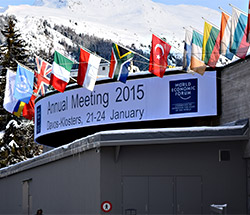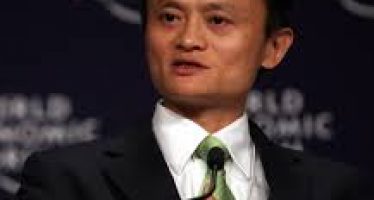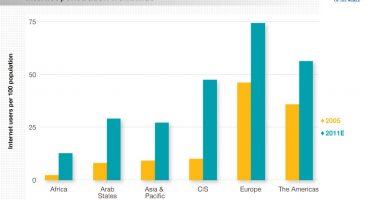World Economic Forum Opens in Davos: Sharing and Caring

Davos: WEF 2015. Photo: Copyright © CFI.co
Davos – Over 2,600 of the world’s most notable people have ascended to Europe’s highest mountain town for a series of meetings that aim to address “key issues of global importance.” Nestled at 1,560m above sea level in a picture-perfect Alpine valley, Davos becomes the capital of the world for a few days each year as the town’s 11,000 or so inhabitants welcome heads of state and government, captains of industry, billionaires, and scores of other prominent people who arrive to deliver their take on global affairs.
Thanks to the WEF, Davos is briefly allowed to recapture some of its former glory as the most glamorous of Swiss ski resorts, a title it lost long ago to St Moritz – a few valleys over to the south.
The 45th annual edition of the World Economic Forum (WEF) gets underway today amid heightened security provided by up to 5,000 army personnel and countless other and slightly less visible officials dedicated – with predictable Swiss precision – to keeping uninvited guests and possible evildoers at bay. Anti-globalist protesters are not expected in any disruptive numbers: it’s fairly cold in Davos and frightfully expensive as well.
“The World Economic Forum serves the international community as a platform for public-private cooperation. Such cooperation, to address the challenges we all face, is more vital than ever before. But it requires mutual trust. My hope is that the annual meeting serves as the starting point for a renaissance of global trust.”
– Klaus Schwab, WEF Executive Chairman
In normal times a rather sleepy – if exceptionally prosperous – town, for the next four days Davos is home to not just WEF invitees, but also their entourage of highly-trained drivers, yes-men, busy fixers, efficient personal assistants, go-getting interns, and charming ladies without any immediately apparent function. These hangers-on and their VIP patrons are in turn surrounded by hordes of camera-toting journalists aiming to catch a glimpse, and quite possibly a word, of the wise and learned men – and the odd woman – who may shine a light on the societal ill du jour.
Mr Happy Meets Mr Gore
Wednesday’s headline sessions include a discussion on the perils of climate change with singer-songwriter Pharrell Williams of Happy fame and one of a growing number of celebrities following in the footsteps of Bono – absent due to a bicycle accident. Mr Williams will be joined by former US Vice-President Al Gore, unfailingly present at the WEF, to provide an answer to the question: What’s Next? A Climate for Action is the right answer.
In another morning session, Italian Prime-Minister Matteo Renzo will hold a talk on transformational leadership. Former UK Prime-Minister Tony Blair, another return visitor to Davos, has been shoehorned in at the last moment by the organisers to expound on religion’s role in the contemporary world. His address – Religion: Pretext or Conflict? – aims to explore whether religious intolerance is actually religious in nature – a topic of singular relevance since the Paris terrorist strikes.
Ukraine President Petro Poroshenko and WEF founder and Executive Chairperson Klaus Schwab are set to consider the severely strained relations between Kiev and Moscow and the conflict over both the Crimea and the Eastern Ukraine. Later in the afternoon, former US Treasury Secretary Larry Summers, OECD (Organisation for Economic Development and Cooperation) Secretary-General Angel Gurría, and Canadian Finance Minister Joe Oliver will discuss the looming centennial slump and ways to avoid a decade of secular stagnation – the condition whereby previously buoyant market economies get stuck in a self-perpetuating cycle of negligible growth.
Cooperation Vital
WEF Executive Chairman Klaus Schwab said on Wednesday morning that “sharing and caring” could possibly be the one-liner best suited to describe this year’s mega-event: “The World Economic Forum serves the international community as a platform for public-private cooperation. Such cooperation, to address the challenges we all face, is more vital than ever before. But it requires mutual trust. My hope is that the annual meeting serves as the starting point for a renaissance of global trust.”
The event comprises around 280 conference sessions touching on most any issue under the sun. Academics provide insights into the latest research developments while some of the world’s foremost nerds are ready to explain in layman’s terms the most recent technological trends and innovations. The overriding theme, as chosen by the organisers, is The New Global Context, a sufficiently broad description that aims to capture the post-financial crisis scepticism regarding the benefits of unfettered globalisation.
However, world events are moving at breakneck speed, undermining the WEF’s attempts at creating a comprehensive and all-inclusive agenda. Whilst up until a few weeks ago, Ebola was at the top of the bill, discussions on the deadly disease have now been relegated to a lower pane in order to make room for newer developments such as the precipitous drop in oil prices, renewed sectarian violence, and the Swiss National Bank’s surprise move away from the euro. The unveiling of an amended quantitative easing push by the European Central Bank, set to take place on Thursday, will undoubtedly dominate the latter part of the Davos meeting.
Ice Row Shuffle
As delegates and others shuffle the ice-clad streets of the Swiss ski resort, Greece prepares for an election and possibly a watershed moment in its history. Greek voters may well have the future of the euro in their hands. If it is up to German Chancellor Angela Merkel – also present in Davos alongside her new best friend, French President François Hollande – the Greek will be no more than a footnote when the history of the Euro is written.
While in Davos, Chancellor Merkel will deliver stern lessons in fiscal discipline and call everyone’s attention to the folly of overspending. François Hollande, all but written off a few short weeks ago, is of course the man of the hour – the heroic defender of all freedoms in the face of bigotry-turned-violent.
The corporate world is also exceptionally well-represented at Davos with Microsoft’s co-founder Bill Gates in attendance besides Google’s Eric Schimdt, Yahoo’s Marissa Mayer, and Facebook’s Sheryl Sandberg. The money brigade includes George Soros, Italian shoe magnate Mario Polegato, Irish telecom mogul Denis O’Brien, Indian industrialist Ado Godrej, and about one hundred other billionaires.
Mr Polegato, founder and chairman of Geox – a shoemaker and retailer – predicted upon arrival at the Edelweiss Hotel that cheap oil is not going to last: “By the end of the year, oil will be trading at around $70 a barrel.” Asked by Bloomberg News how he would invest his untold millions, Mr Polegato recommended US dollars, gold, and … Picassos.
Russian billionaire David Yakobachvili, begs to disagree and cannot visualise an immediate end to the second coming of the era of cheap oil. Mr Yakobachvili also fails to see the difficulty in fixing the world’s economy: “That is a fairly easy thing to do. It is a lot harder to face off the threat of military escalation. Conflicts pose the most serious threat to global wellbeing.”
Affluent Oracles
The billionaire oracles assembled in Davos are eager to dispense investment advice, predictions, and other titbits of conventional wisdom to please and impress both their peers and the masses. It is part of an event that gauges the state of the world with a view to improving it.
Be that as it may, the annual Davos happening has become first and foremost the premier global networking event: a LinkedIn on steroids for the masters of the world. Deals are struck a dime a dozen, complex issues get boiled down to their pragmatic essentials, and lofty resolutions adopted wholesale.
It is a matter of being there and of being seen, heard, and applauded by the world’s movers and shakers. Davos is not necessarily a place where troubling issues are solved. It was not conceived with this in mind. Rather, the WEF flagship event is a venue for those who hold power in one form or another to speak their mind.
However exclusive and rarefied its atmosphere, the WEF Davos happening is a one-of-a-kind event that brings together the 1% – or 0.1% – that really matters. Like it or not, such an event – a coming-out party of sorts for the (however) chosen few – remains a necessity. Question is: do these uppity types really control the world’s events as they – and we – think they do?
You may have an interest in also reading…
The Red Sea International Airport Takes Off: Contract Award to Nesma & Partners and Almabani
This contract has been awarded to support the creation of a sustainable gateway opening Saudi Arabia to the world Riyadh,
The IT Scene in China: Alibaba’s New ‘Open Sesame’ Financing
Alibaba is China’s largest e-commerce company. It is a privately owned Hangzhou-based group of Internet-based e-commerce businesses which, amazingly enough,
The Transformation of Africa’s ICT Market
Event: Addis Ababa, Ethiopia 9-11 May 2012 Africa holds exciting new business opportunities for international companies in many sectors, including in


















































































